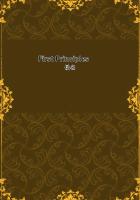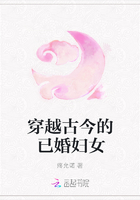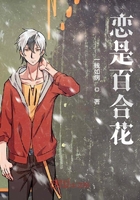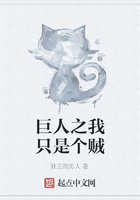THE STATE BEDROOM ONCE MOREWHEN, immediately after the episode of the bottle of Romanée-Conti in the State dining-room, Prince Aribert and old Hans found that Prince Eugen had sunk in an unconscious heap over his chair, both the former thought, at the first instant, that Eugen must have already tasted the poisoned wine. But a moment's reflection showed that this was not possible. If the Hereditary Prince of Posen was dying or dead, his condition was due to some other agency than the Romanée-Conti. Aribert bent over him, and a powerful odour from the man's lips at once disclosed the cause of the disaster: it was the odour of laudanum. Indeed, the smell of that sinister drug seemed now to float heavily over the whole table.
Across Aribert's mind there flashed then the true explanation.
Prince Eugen, taking advantage of Aribert's attention being momentarily diverted; and yielding to a sudden impulse of despair, had decided to poison himself, and had carried out his intention on the spot.
The laudanum must have been already in his pocket, and this fact went to prove that the unfortunate Prince had previously contemplated such a proceeding, even after his definite promise.
Aribert remembered now with painful vividness his nephew's words: 'I withdraw my promise. Observe that - I withdraw it.' It must have been instantly after the utterance of that formal withdrawal that Eugen attempted to destroy himself.
'It's laudanum, Hans,' Aribert exclaimed, rather helplessly.
'Surely his Highness has not taken poison?' said Hans. 'It is impossible!'
'I fear it is only too possible,' said the other. 'It's laudanum. What are we to do? Quick, man!'
'His Highness must be roused, Prince. He must have an emetic. We had better carry him to the bedroom.'
They did, and laid him on the great bed; and then Aribert mixed an emetic of mustard and water, and administered it, but without any effect. The sufferer lay motionless, with every muscle relaxed. His skin was ice-cold to the touch, and the eyelids, half-drawn, showed that the pupils were painfully contracted.
'Go out, and send for a doctor, Hans. Say that Prince Eugen has been suddenly taken ill, but that it isn't serious. The truth must never be known.'
'He must be roused, sire,' Hans said again, as he hurried from the room.
Aribert lifted his nephew from the bed, shook him, pinched him, flicked him cruelly, shouted at him, dragged him about, but to no avail. At length he desisted, from mere physical fatigue, and laid the Prince back again on the bed. Every minute that elapsed seemed an hour. Alone with the unconscious organism in the silence of the great stately chamber, under the cold yellow glare of the electric lights, Aribert became a prey to the most despairing thoughts. The tragedy of his nephew's career forced itself upon him, and it occurred to him that an early and shameful death had all along been inevitable for this good-natured, weak-purposed, unhappy child of a historic throne. A little good fortune, and his character, so evenly balanced between right and wrong, might have followed the proper path, and Eugen might have figured at any rate with dignity on the European stage. But now it appeared that all was over, the last stroke played. And in this disaster Aribert saw the ruin of his own hopes. For Aribert would have to occupy his nephew's throne, and he felt instinctively that nature had not cut him out for a throne. By a natural impulse he inwardly rebelled against the prospect of monarchy. Monarchy meant so much for which he knew himself to be entirely unfitted. It meant a political marriage, which means a forced marriage, a union against inclination. And then what of Nella - Nella!
Hans returned. 'I have sent for the nearest doctor, and also for a specialist,' he said.
'Good,' said Aribert. 'I hope they will hurry.' Then he sat down and wrote a card. 'Take this yourself to Miss Racksole. If she is out of the hotel, ascertain where she is and follow her. Understand, it is of the first importance.'
Hans bowed, and departed for the second time, and Aribert was alone again.
He gazed at Eugen, and made another frantic attempt to rouse him from the deadly stupor, but it was useless. He walked away to the window: through the opened casement he could hear the tinkle of passing hansoms on the Embankment below, whistles of door-keepers, and the hoot of steam tugs on the river. The world went on as usual, it appeared. It was an absurd world.
He desired nothing better than to abandon his princely title, and live as a plain man, the husband of the finest woman on earth. . . .
But now! . . .
Pah! How selfish he was, to be thinking of himself when Eugen lay dying. Yet - Nella!
The door opened, and a man entered, who was obviously the doctor. A few curt questions, and he had grasped the essentials of the case. 'Oblige me by ringing the bell, Prince. I shall want some hot water, and an able-bodied man and a nurse.'
'Who wants a nurse?' said a voice, and Nella came quietly in. 'I am a nurse,' she added to the doctor, 'and at your orders.'
The next two hours were a struggle between life and death. The first doctor, a specialist who followed him, Nella, Prince Aribert, and old Hans formed, as it were, a league to save the dying man.
None else in the hotel knew the real seriousness of the case. When a Prince falls ill, and especially by his own act, the precise truth is not issued broadcast to the universe.
According to official intelligence, a Prince is never seriously ill until he is dead. Such is statecraft.
The worst feature of Prince Eugen's case was that emetics proved futile.

